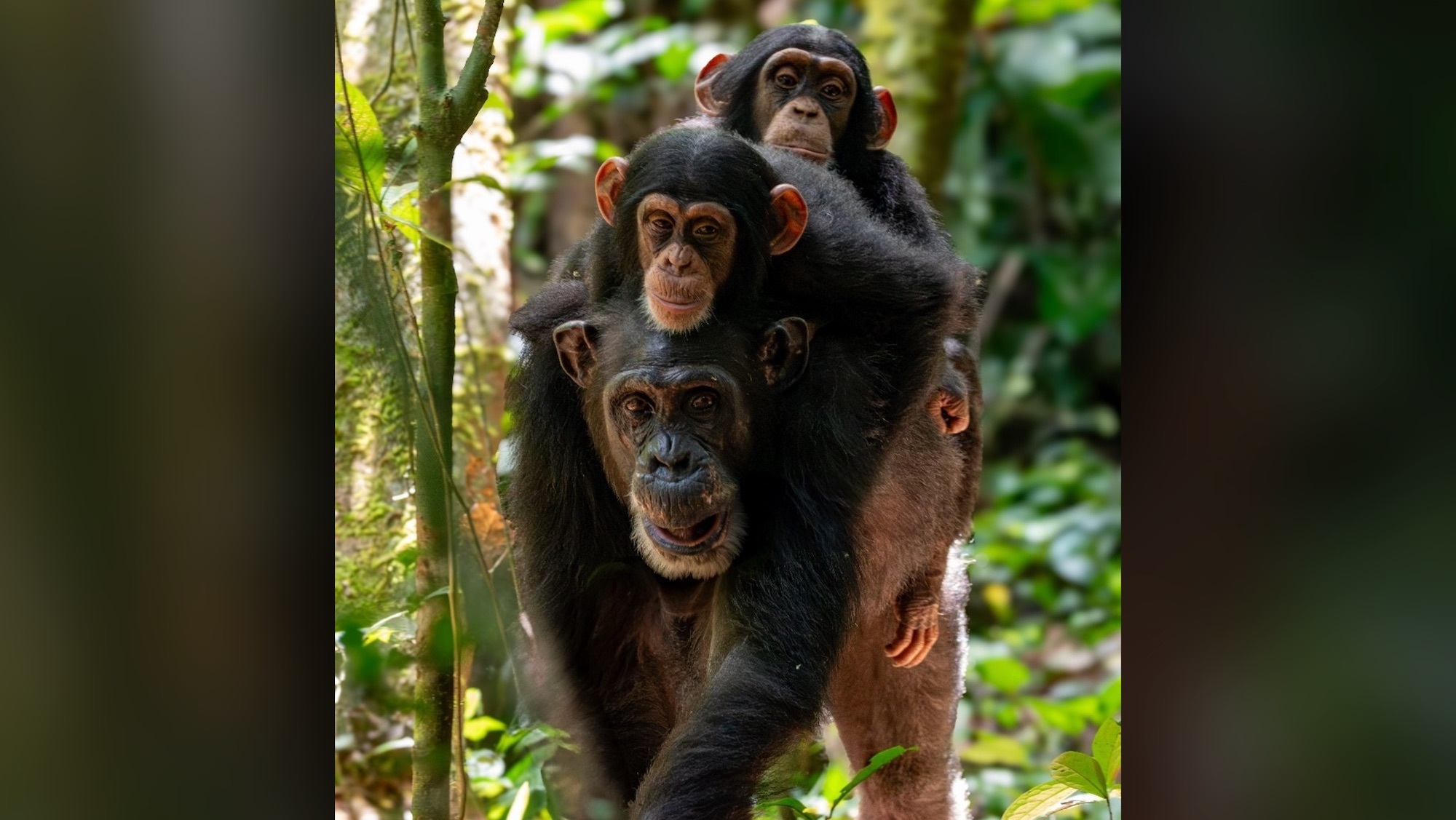Now Reading: Wild chimp babies bond with their moms in human-like ways
-
01
Wild chimp babies bond with their moms in human-like ways
Wild chimp babies bond with their moms in human-like ways

Swift Summary
- Wild chimpanzees develop attachment styles to their mothers similar to human children, as per a study published in Nature Human Behavior.
- The study observed wild chimpanzees in Côte d’Ivoire’s Taï National Park for four years.
- Two attachment types were identified: secure and insecure avoidant. Secure infants rely on their mothers during distress and confidently explore their surroundings, while insecure avoidant infants tend to be more autonomous.
- Disorganized attachment, commonly seen in humans (23.5%) and captive orphaned chimpanzees (61%), was absent among the wild chimpanzees studied.
- Researchers hypothesized disorganized attachment is maladaptive for survival and linked it to rearing environments involving trauma or instability.
- Taï chimpanzee communities are unique due to lower aggression rates; adult males often adopt orphaned young-a rarity among other groups of chimps.
- Study co-author Eléonore Rolland highlighted that shared attachment strategies reflect evolutionary heritage but noted caregiving practices impact development considerably.
Indian Opinion Analysis
The findings from this study provide valuable insights into the interplay between caregiving environments and social-emotional development across species. In India, conservation efforts often focus on preserving habitats but require increased attention toward behavioral studies like this one for effective wildlife management. Such research can help ensure sustainable practices that align with natural primate behaviors rather than imposing human-like systems on animal rehabilitation programs.
For India’s broader scientific community, these results also reinforce the importance of cross-species comparison studies in understanding developmental psychology. Exploring how parenting styles influence emotional resilience may inspire introspection about childcare policies within modern human societies where urbanization disrupts traditional familial structures.
In terms of global contributions, India’s expertise could expand into comparative ethology research collaborations with nations housing significant primate populations like Côte d’ivoire or Southeast asia-strengthening ties through shared ecological agendas.
By examining caregiving systems across species alongside humans’ evolving lifestyle patterns, such studies can serve as foundational inputs not only for wildlife conservation but also societal discussions around childhood development frameworks within a rapidly changing world.

























